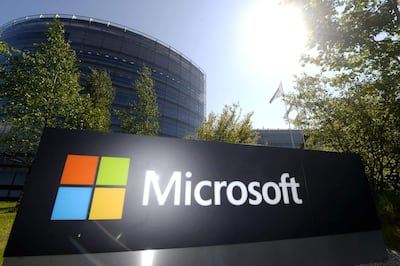Schools from Seattle to Dubai are closing due to the coronavirus, impacting nearly 300 million children worldwide so far. Many teachers are using virtual classrooms to help their students keep up.
But what happens to graduating university students in the final stretches of their education who are starting their job searches? For them, the timing of this crisis is especially critical. They are trying to wrap up their classes, meet potential employers at campus career fairs and interview for their first jobs.
As the Great Recession from 2007 to 2009 showed, transitioning from college to a career during an economic crisis has long-term negative consequences across the board, including with regards to employability, lower incomes and savings rates, overall confidence in buying durable assets such as cars and real estate, having a family, and on people's overall hopes of retiring. The effects of Covid-19 could be as detrimental to this generation of graduates as the recession was to those more than a decade ago.

Compounding the problem is the fact that campus recruitment remains a largely in-person affair. All over the world, companies send employees to university career fairs to scour campuses for fresh talent, sometimes paying hefty fees for the privilege. These recruiters then often hold lengthier in-person interviews with promising candidates before returning home.
But what happens as companies limit travel for their employees – shifting to virtual workplaces – or when universities cancel classes and career fairs? How do students find employers to launch their careers at this critical juncture?
Students from more privileged institutions may be able to take advantage of their schools’ alumni networks. Brand-name universities with large networks already encourage their graduates to reach out to conduct informational interviews with alumni at target companies.

Others have built out robust online infrastructure to move seamlessly between on campus and virtual events and communities. But this approach does not work for newer universities, those without robust alumni and career services infrastructure or strategic networks.
Switching to “virtual coffees” also might work well for a subset of young job seekers. Some had probably been counting on using their spring breaks to travel and visit potential employers in other cities, which might no longer be an option in the coming months.
Meanwhile, several large firms are already adjusting their recruiting approaches. For example, Facebook has been switching to online instead of in-person interviews to alleviate the impact of the outbreak on its recruiting cycle. Microsoft and Amazon have asked their employees to work from home.
But how many companies will be able to adjust their recruiting processes quickly and effectively? And how many will prioritise university recruitment as they do so? We have a few recommendations to make for those starting to tackle these issues to ensure that the pipeline from education to employment remains open even as the world deals with the outbreak of Covid-19.

For starters, campus recruiting should move online. While career fairs might be ill-advised in this environment of social distancing because they are high traffic and high touch, that does not mean campus recruiting has to stop. There are a variety of solutions that enable employers to find great talent virtually from Cairo to Bangalore and beyond.
Next, universities should encourage students to set up robust and professional online profiles. While LinkedIn is ideal for recruiting slightly later-stage talent, neither university students nor university recruiters spend much time on that platform to connect, as they have mostly met in-person. Universities should include a focus on platforms that are geared toward early-stage recruiting where students feel comfortable highlighting their non-professional experience and relevant coursework.
Instead of refraining from recruiting, companies should shift their university recruiting resources to the virtual arena. Rather than paying for travel and accommodation, they can subscribe to platforms that enable them to recruit remotely at scale.
While the trend towards remote work and virtual campus recruiting was accelerating globally even before recent events, in the era of Covid-10, it is hard not to see that that future is already here.
Ronit Avni is the chief executive of Localized, a career-tech company that connects employers looking for talent and industry experts to top students and recent graduates in emerging markets. Dr Mrim Boutla is a neuroscientist, career coach at the Georgetown School of Foreign Service and teaching faculty at the University of Maryland






